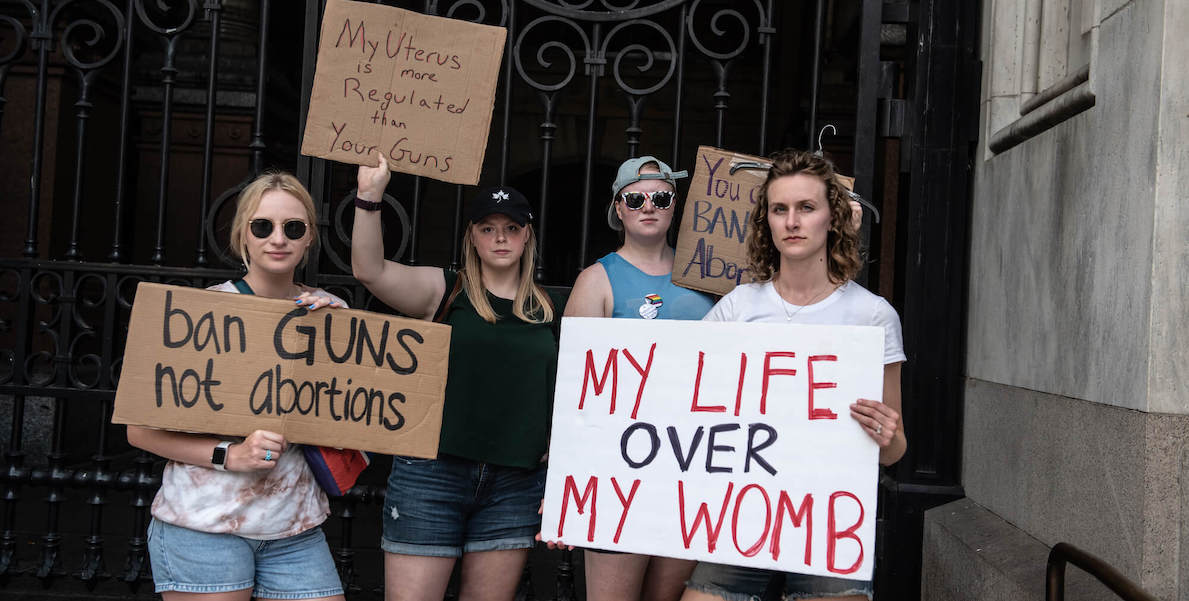Friday, June 24, 2022 was the day that millions across the country feared: The Supreme Court overturned Roe v. Wade, decimating the right to abortion across our United States.
This decision means that individual states, not the federal government, will determine if, when, and how people of reproductive age and families make decisions about their future and bodily autonomy. With 26 — half of all — states poised to ban abortion soon, approximately 36 million people of reproductive age across the U.S. will be without in-clinic abortion access.
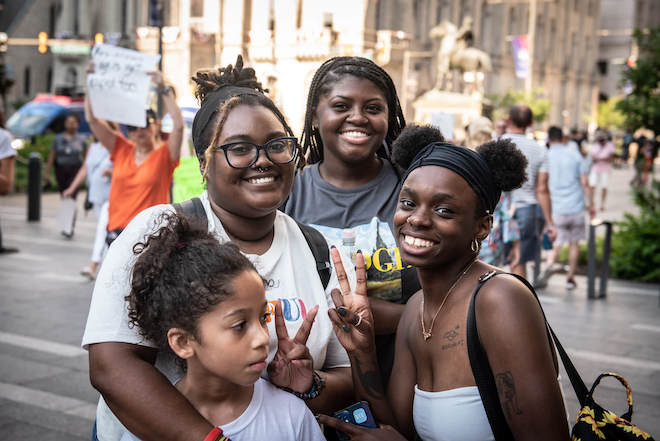
Immediately abortion became outlawed in Alabama, Arkansas, Kentucky, Louisiana, Missouri, South Dakota, Texas, and Utah. Other states enacted partial bans. Many expect to take legislative action to outlaw abortion within one month. A few issued resolutions to protect the right to abortion.
Although the writing has been on the wall for decades, those fighting for reproductive justice have always considered Roe as the floor, not the ceiling.
While many of us in the movement knew this day was coming, the shock for over half the population in the U.S. is visible. Protests erupted here in Philly and across the nation. Although the writing has been on the wall for decades, those fighting for reproductive justice have always considered Roe as the floor, not the ceiling.
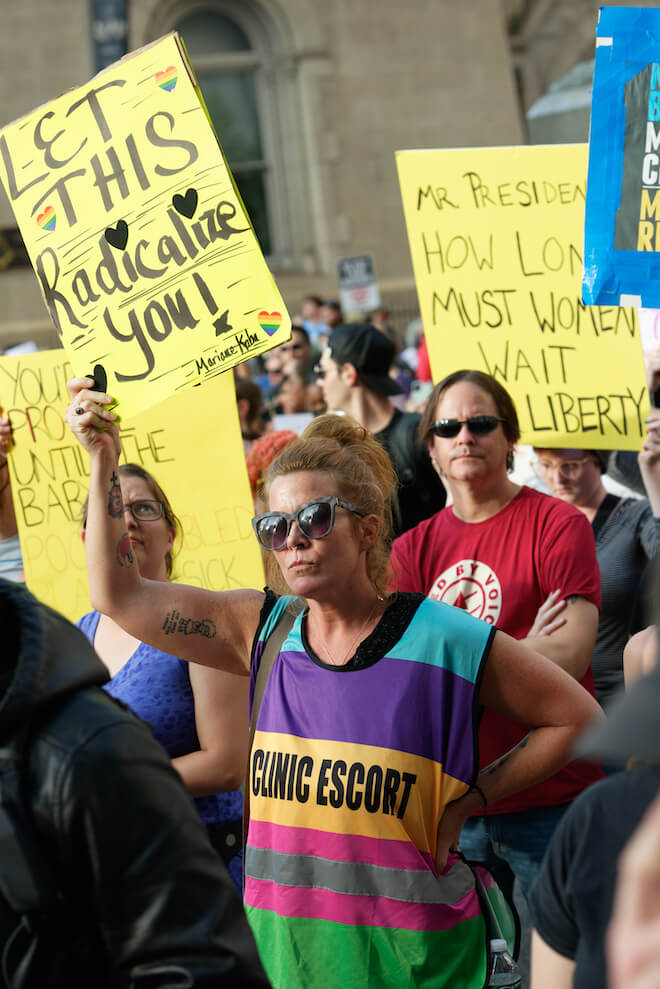
“Even with Roe v. Wade,” says New Voices for Reproductive Justice executive director Kelly Davis, “The United States was not a haven for abortion or any kind of reproductive health care, especially for Black people. The reproductive justice movement will continue to center the most marginalized in our activism and ensure our communities get what they need to not only survive but thrive.”
Abortion deserts have been growing across the U.S. According to a mid-year report published by the Guttmacher Institute, 2022 has seen the most restrictive abortion rights legislation ever, where laws curtailed access and care, and created a system that criminalized patients and healthcare providers.
These bans make it impossible for people in many states — particularly individuals with low incomes and Black, Indigenous, and all People of Color (BIPOC) — to obtain a surgical abortion at a clinic without traveling hundreds of miles.
Abortion access in Pennsylvania: Available but unequal
“The most important thing for folks in Pennsylvania to know is that abortion is still legal and as accessible as it has been in the past number of years,” says Julie Zaebst, senior policy advocate at ACLU of Pennsylvania.
Abortion is legal and unequal in Pennsylvania — and it is not set in stone.
Systemic racism and discrimination have resulted in unequal access to health care and abortion since Roe’s conception. “When it comes to sexual and reproductive health, whether premature or low birth weight, unwanted pregnancy, or exposure to gender-based violence, all of those things impact Black women and gender expansive folks the most, ” says Davis.
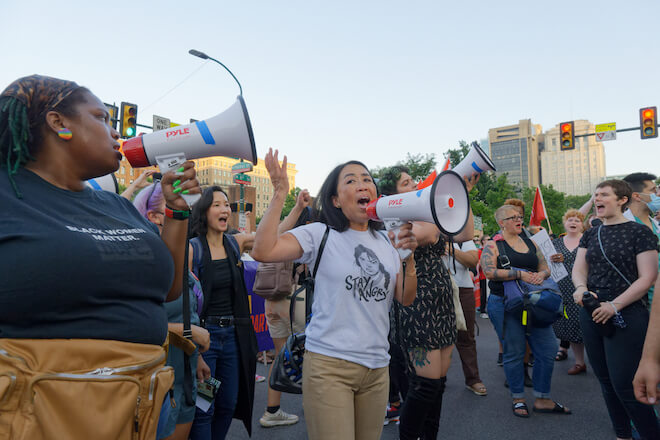
According to Zaebst, Pennsylvania leads the country in restrictions on abortion. Restrictions include patients being required to listen to state-scripted counseling that discourages abortion, a parental signature or judicial bypass for people under 18, and a mandatory 24-hour waiting period. The most extreme restriction disallows Medicaid to cover abortion care.
Medicaid, by definition, is for low-income people, so this restriction impacts intentionally marginalized and systemically oppressed BIPOC, youth, and LGBTQ++ communities more than any other.
Abortion is legal and unequal in Pennsylvania — and it is not set in stone. At this point, Governor Wolf has promised to veto any anti-abortion policy or legislation. However, Pennsylvania has a strong anti-abortion majority in Harrisburg. What’s more, a loophole allows constitutional amendments to bypass the governor.
Right this moment, the legislature is considering Bill SB 956, a joint resolution proposing an amendment to the state constitution banning all abortion and any funding for abortion. Because it’s a constitutional amendment, it can be brought to the people for a vote if it passes in two consecutive sessions. Policy analysts project this will happen in 2023.
The fight for reproductive justice continues
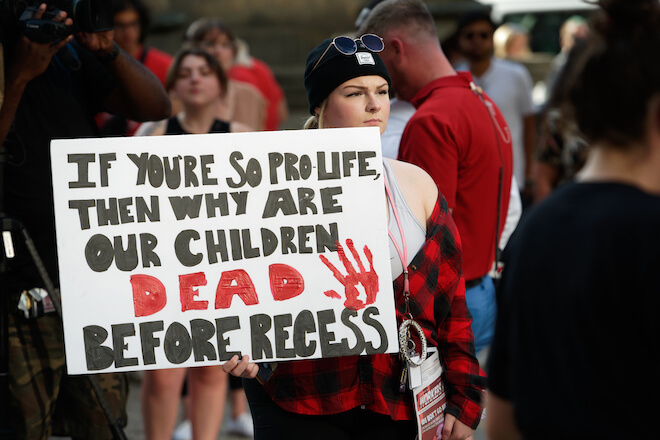
“New Voices is dedicated to providing the communities we serve with the resources they need, which is why our #SayHERName Justice Fund now includes grants for abortion care and costs. We are organizing Black women, girls, femmes, and folx across Pennsylvania and Ohio to engage in the reproductive justice movement to fight for our future liberation. As a collective, we have the power to make our voices heard,” says Davis.
With Friday’s decision, even more people will have to travel hundreds of miles out of state or access abortion pills online. Overburdened clinics will be overwhelmed by out-of-state patients desperate for essential abortion services. (This has already been the case in states such as New Mexico, which borders Texas.) According to Zaebst, abortion providers in the southern part of Pennsylvania may see their patient load triple with people coming from Ohio, West Virginia and potentially other states.
So, what can you do?
Vote in the gubernatorial race and the midterms. Pay close attention to SB 956 and vote against it. Engage in community mobilization and education work as a volunteer, and donate to clinics and abortion funds in Pennsylvania such as Allegheny Reproductive Health Center.

Drive culture change by talking about abortion, specifically your own story, with family and friends. With one in four women seeking an abortion before 45, conversations reduce the stigma of this standard and normal part of reproductive health.
With a variety of intersecting issues deteriorating our democracy from gun violence in our schools, to stripping away reproductive freedom, gender affirming care, now is the time to act. Sign ACLU Pennsylvania’s pledge and become an abortion care champion.
Other ways to get information and take action
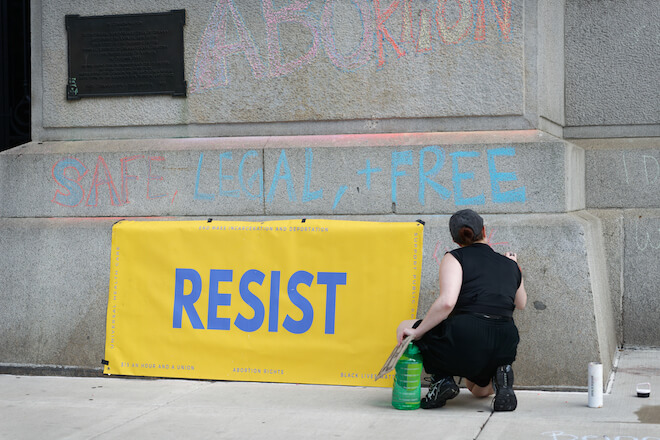
- New Voices for Reproductive Justice: The alarm has been rung. New Voices will answer the call as abortion restrictions target the most marginalized among us, particularly Black people.
- Abortion Liberation Fund: Protects and expands access to abortion for individuals experiencing poverty in Southeastern Pennsylvania through direct services and community organizing.
- CTLpod.com: Subscribe and share the stories of this dynamic and timely audio documentary series featuring abortion resources and take-action guides.
- Abortion Finder: Features the most comprehensive directory of trusted (and verified) abortion service providers in the United States.
- Plan C Pills: Provides options and information for at-home abortion pill access.
- Aid Access: Supports all people with an unwanted pregnancy to access an abortion or miscarriage treatment.
- Repro Legal Helpline: A free, confidential helpline for legal information or advice about self-managed abortion, young people’s access to abortion or judicial bypass, and referrals to local resources.
Charity Tooze is a life-long advocate for gender and race equity. She is the impact and partnerships strategist for Crossing the Line and the mother of a powerful girl in Philadelphia.
![]()
MORE ON WOMEN’S HEALTH FROM THE CITIZEN
![]()
MOST POPULAR
Rally outside City Hall on June 25. | By Amber Johnston, amberjohnstonphotos.com


